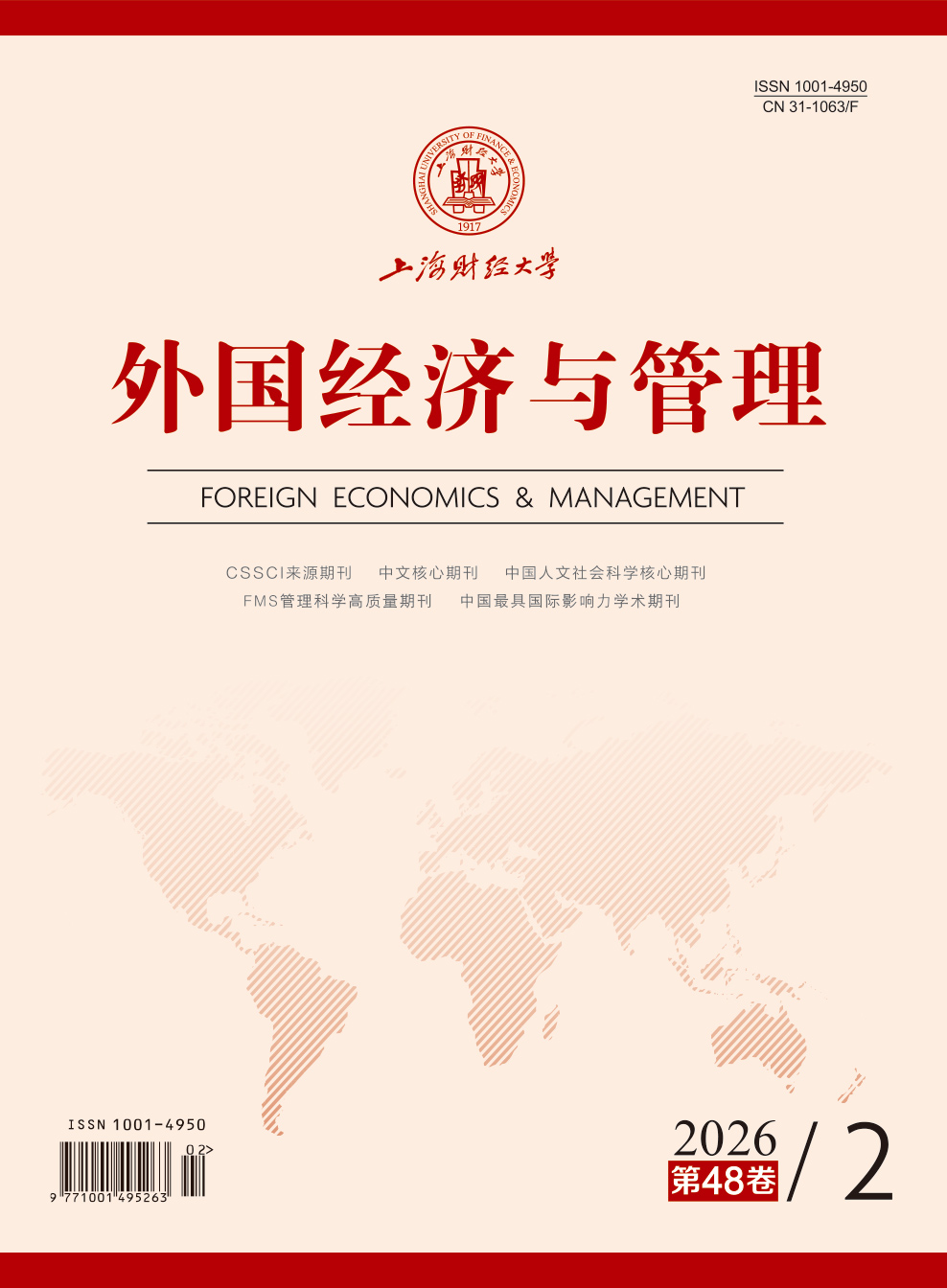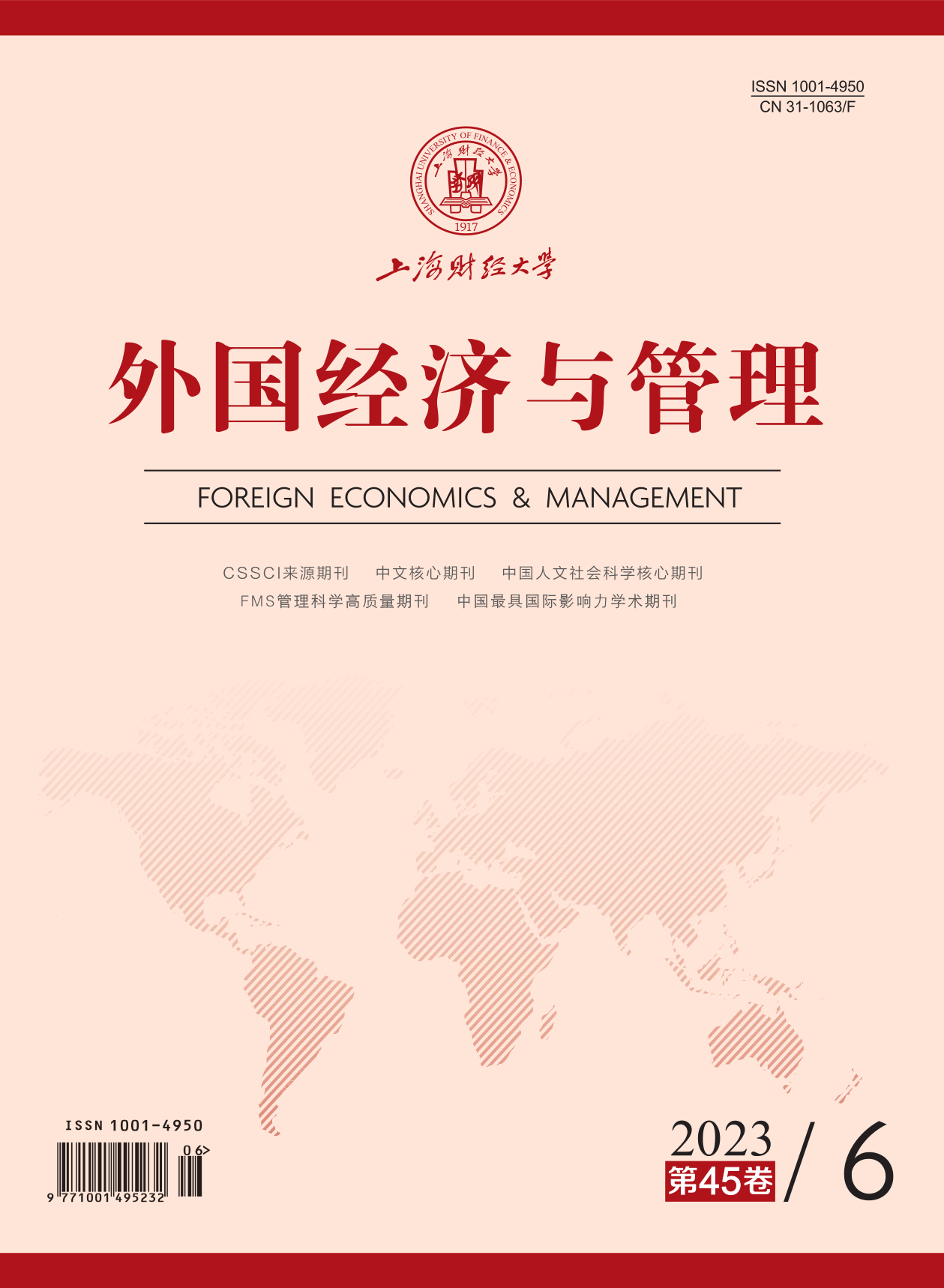口碑尤其是网络评论对消费者的购物行为产生越来越重要的影响,而现有研究较少关注口碑出现两极分化对消费者购买决策的影响。本研究从口碑两极分化隐含的冲突性、争议性这一视角出发,将个体的冲突解决风格与产品偏好两个看似不相关的概念联系起来,推断自我建构对口碑两极分化产品偏好具有显著影响,其中冲突解决风格起中介作用。通过四项实验,结果发现:独立型自我建构个体比依存型自我建构个体更偏好口碑两极分化产品,冲突解决风格在自我建构对口碑两极分化产品偏好的影响中起中介作用。该中介作用受到产品使用情境的调节。公开情境下,独立型自我建构个体比依存型自我建构个体更偏好口碑两极分化产品;私人情境下,不同自我建构个体对口碑两极分化产品的偏好无显著差异。本研究增进了对口碑两极分化现象影响效应的认知,丰富了自我建构对消费者行为影响机制的研究。
自我建构、冲突解决风格与口碑两极分化产品偏好
摘要
参考文献
11 Bae S, Liu X Y, Ng S. We are more tolerant than I: Self-construal and consumer responses toward deceptive advertising[J]. Marketing Letters,2022, 33(2): 277-291. DOI:10.1007/s11002-021-09593-5
12 Bearden W O, Etzel M J. Reference group influence on product and brand purchase decisions[J]. Journal of Consumer Research,1982, 9(2): 183-194. DOI:10.1086/208911
13 Burnkrant B E, Cousineau A. Informational and normative social influence in buyer behavior[J]. Journal of Consumer Research,1975, 2(3): 206-215. DOI:10.1086/208633
14 Buss D M. The evolution of anxiety and social exclusion[J]. Journal of Social and Clinical Psychology,1990, 9(2): 196-201. DOI:10.1521/jscp.1990.9.2.196
15 Chang S T, Lin T M Y, Luarn P. The effects of word-of-mouth consistency on persuasiveness[J]. Canadian Journal of Administrative Sciences,2014, 31(2): 128-141. DOI:10.1002/cjas.1279
16 Cheema A, Kaikati A M. The effect of need for uniqueness on word of mouth[J]. Journal of Marketing Research,2010, 47(2): 553-563.
17 Chen Z, Berger J. When, why, and how controversy causes conversation[J]. Journal of Consumer Research,2013, 40(3): 580-593. DOI:10.1086/671465
18 Dahl D W, Fuchs C, Schreier M. Why and when consumers prefer products of user-driven firms: A social identification Account[J]. Management Science,2015, 61(8): 1978-1988. DOI:10.1287/mnsc.2014.1999
19 Duan W J, Gu B, Whinston A B. Do online reviews matter? —An empirical investigation of panel data[J]. Decision Support Systems,2008, 45(4): 1007-1016. DOI:10.1016/j.dss.2008.04.001
20 Faul F, Erdfelder E, Buchner A, et al. Statistical power analyses using G*power 3.1: Tests for correlation and regression analyses[J]. Behavior Research Methods,2009, 41(4): 1149-1160. DOI:10.3758/BRM.41.4.1149
21 Gudykunst W B, Matsumoto Y, Ting-Toomey, et al. The influence of cultural individualism-collectivism, self construals, and individual values on communication styles across cultures[J]. Human Communication Research,1996, 22(4): 510-543. DOI:10.1111/j.1468-2958.1996.tb00377.x
22 He S X, Bond S D. Why is the crowd divided? Attribution for dispersion in online word of mouth[J]. Journal of Consumer Research,2015, 41(6): 1509-1527. DOI:10.1086/680667
23 Higgins E T, Friedman R S, Harlow R E, et al. Achievement orientations from subjective histories of success: Promotion pride versus prevention pride[J]. European Journal of Social Psychology,2001, 31(1): 3-23. DOI:10.1002/ejsp.27
24 Kim M S, Hunter J E, Miyahara A, et al. Individual- vs. culture-level dimensions of individualism and collectivism: Effects on preferred conversational styles[J]. Communication Monographs,1996, 63(1): 29-49. DOI:10.1080/03637759609376373
25 Lalwani A K, Shavitt S. You get what you pay for? Self-construal influences price-quality judgments[J]. Journal of Consumer Research,2013, 40(1): 255-267.
26 Lee A Y, Aaker J L, Gardner W L. The pleasures and pains of distinct self-construals: The role of interdependence in regulatory focus[J]. Journal of Personality and Social Psychology,2000, 78(6): 1122-1134. DOI:10.1037/0022-3514.78.6.1122
27 Luo X M, Wiles M A, Raithel S. Making the most of a polarizing brand[J]. Harvard Business Review,2013, 91(11): 29-31.
28 Mandel N. Shifting selves and decision making: The effects of self-construal priming on consumer risk-taking[J]. Journal of Consumer Research,2003, 30(1): 30-40. DOI:10.1086/374700
29 Markus H R, Kitayama S. Culture and the self: Implications for cognition, emotion, and motivation[J]. Psychological Review,1991, 98(2): 224-253. DOI:10.1037/0033-295X.98.2.224
30 Morris M W, Williams K Y, Leung K, et al. Conflict management style: Accounting for cross-national differences[J]. Journal of International Business Studies,1998, 29(4): 729-747. DOI:10.1057/palgrave.jibs.8490050
31 Nisbett R E, Peng K, Choi I, et al. Culture and systems of thought: Holistic versus analytic cognition[J]. Psychological Review,2001, 108(2): 291-310. DOI:10.1037/0033-295X.108.2.291
32 Oetzel J G. The effects of self-construals and ethnicity on self-reported conflict styles[J]. Communication Reports,1998, 11(2): 133-144. DOI:10.1080/08934219809367695
33 Park C W, Lessig V P. Students and housewives: Differences in susceptibility to reference group influence[J]. Journal of Consumer Research,1977, 4(2): 102-110. DOI:10.1086/208685
34 Peng K, Nisbett R E. Culture, dialectics, and reasoning about contradiction[J]. American Psychologist,1999, 54(9): 741-754. DOI:10.1037/0003-066X.54.9.741
36 Preacher K J, Hayes A F. Asymptotic and resampling strategies for assessing and comparing indirect effects in multiple mediator models[J]. Behavior Research Methods,2008, 40(3): 879-891. DOI:10.3758/BRM.40.3.879
37 Putnam L L. Communication and interpersonal conflict in organizations[J]. Management Communication Quarterly,1988, 1(3): 293-301. DOI:10.1177/0893318988001003002
38 Rahim M A. A measure of styles of handling interpersonal conflict[J]. Academy of Management Journal,1983, 26(2): 368-376. DOI:10.2307/255985
39 Ratner R K, Kahn B E. The impact of private versus public consumption on variety-seeking behavior[J]. Journal of Consumer Research,2002, 29(2): 246-257. DOI:10.1086/341574
40 Rozenkrants B, Wheeler S C, Shiv B. Self-expression cues in product rating distributions: When people prefer polarizing products[J]. Journal of Consumer Research,2017, 44(4): 759-777. DOI:10.1093/jcr/ucx067
41 Ruvio A, Shoham A, Brencic M M. Consumers’ need for uniqueness: Short-form scale development and cross-cultural validation[J]. International Marketing Review,2008, 25(1): 33-53. DOI:10.1108/02651330810851872
42 Simpson B, White K, Laran J. When public recognition for charitable giving backfires: The role of independent self-construal[J]. Journal of Consumer Research,2018, 44(6): 1257-1273. DOI:10.1093/jcr/ucx101
43 Singelis T M. The measurement of independent and interdependent self-construals[J]. Personality and Social Psychology Bulletin,1994, 20(5): 580-591. DOI:10.1177/0146167294205014
44 Singelis T M, Brown W J. Culture, self, and collectivist communication: Linking culture to individual behavior[J]. Human Communication Research,1995, 21(3): 354-389. DOI:10.1111/j.1468-2958.1995.tb00351.x
45 Sternberg R J, Dobson D M. Resolving interpersonal conflicts: An analysis of stylistic consistency[J]. Journal of Personality and Social Psychology,1987, 52(4): 794-812. DOI:10.1037/0022-3514.52.4.794
46 Ting-Toomey S, Oetzel J G, Yee-Jung K. Self-construal types and conflict management styles[J]. Communication Reports,2001, 14(2): 87-104. DOI:10.1080/08934210109367741
47 Torelli C J. Individuality or conformity? The effect of independent and interdependent self-concepts on public judgments[J]. Journal of Consumer Psychology,2006, 16(3): 240-248. DOI:10.1207/s15327663jcp1603_6
48 Trafimow D, Triandis H C, Goto S G. Some tests of the distinction between the private self and the collective self[J]. Journal of Personality and Social Psychology,1991, 60(5): 649-655. DOI:10.1037/0022-3514.60.5.649
49 Yin H, Zheng S, Yeoh W, et al. How online review richness impacts sales: An attribute substitution perspective[J]. Journal of the Association for Information Science and Technology,2021, 72(7): 901-917. DOI:10.1002/asi.24457
50 Zhang M Y, Zhao H C, Chen H A. How much is a picture worth? Online review picture background and its impact on purchase intention[J]. Journal of Business Research,2022, 139: 134-144. DOI:10.1016/j.jbusres.2021.09.050
51 Zhang Y L, Feick L, Price L J. The impact of self-construal on aesthetic preference for angular versus rounded shapes[J]. Personality and Social Psychology Bulletin,2006, 32(6): 794-805. DOI:10.1177/0146167206286626
引用本文
武丽慧, 王璐成. 自我建构、冲突解决风格与口碑两极分化产品偏好[J]. 外国经济与管理, 2023, 45(6): 101-117.
导出参考文献,格式为:





 8114
8114  6464
6464

